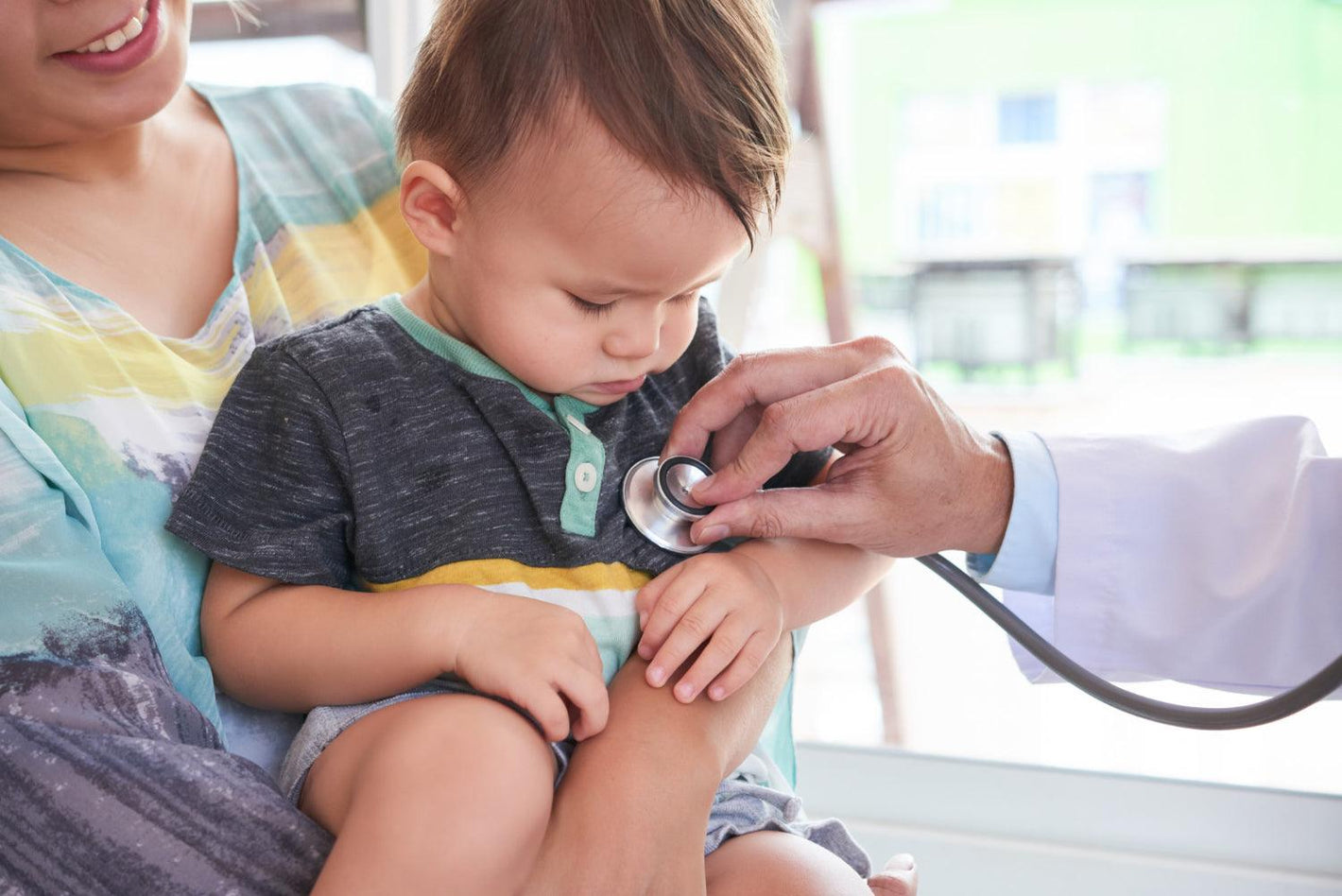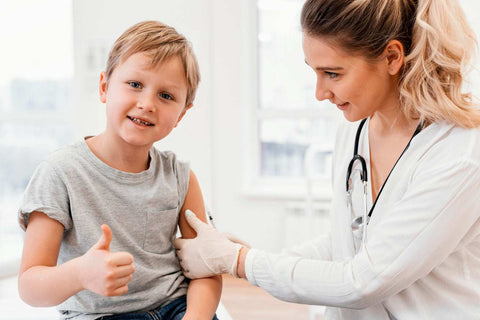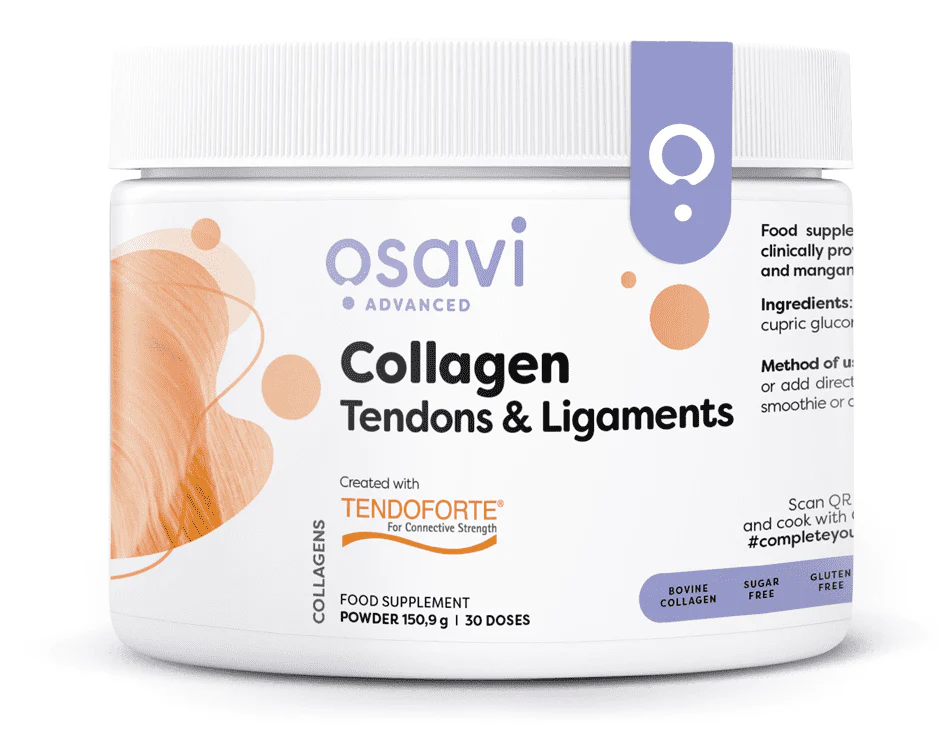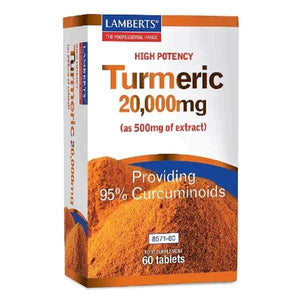2 Year Health Check


Related products

The 2-year health check serves as a pivotal assessment in a child’s developmental journey, marking a significant milestone where early childhood growth and development are thoroughly evaluated. This health check, often considered a cornerstone in pediatric care, offers a comprehensive insight into a child’s physical, cognitive, emotional, and social progression. According to Dr. Emily Clarke, a leading pediatrician in London, “The 2-year check is more than just a routine examination; it’s a crucial juncture to assess developmental milestones, identify potential concerns early, and provide guidance to parents on nurturing their child’s growth.”
At this stage, children typically undergo rapid developmental changes. They begin to exhibit a greater range of emotions, develop more complex language skills, and show increased physical coordination. Dr. Clarke emphasizes, “It’s a time of immense growth. Children at this age are not only learning to walk and talk but are also developing foundational skills in thinking, learning, and social interaction.” The 2-year health check aims to evaluate these milestones to ensure that children are developing as expected for their age.
A key aspect of this check involves assessing a child’s physical development. This includes monitoring height and weight to ensure they are growing at a healthy rate. Dr. James Peterson, a pediatric specialist, notes, “Growth patterns can tell us a lot about a child’s overall health. A deviation from normal growth curves might indicate underlying health issues.” The check also looks at fine and gross motor skills, such as the ability to use small objects and walk independently, respectively.
Cognitive development is another critical area assessed during the 2-year health check. This phase marks significant advancements in a child’s thinking and problem-solving abilities. As Dr. Peterson explains, “Children at this age are curious explorers. They learn by doing, which is why it's important to assess their cognitive skills through interactive play during the check.” Language skills, a vital component of cognitive development, are also evaluated. The ability to form simple sentences and follow basic instructions are typical milestones expected around this age.
Emotional and social development are equally important. At two years, children begin to show more awareness of others' feelings and start to play alongside their peers. According to Dr. Sarah Thompson, a child psychologist, “Social interactions and emotional expressions at this age are indicators of a child’s emotional health. The 2-year check helps in identifying any early signs of developmental delays or social challenges.” It’s a time when children start to assert their independence, often leading to the so-called ‘terrible twos,’ a period characterized by mood swings and temper tantrums.
The importance of this health check extends beyond mere physical assessments. It offers an opportunity for parents to discuss their concerns with healthcare professionals. Dr. Clarke advises, “Parents should see this as a two-way conversation. It's not just about us assessing the child, but also about providing support and guidance to the parents.” Parental observations and insights are invaluable in this process, as they contribute to a more comprehensive understanding of the child’s development.
Statistics underline the importance of these checks. A study by the National Health Service (NHS) revealed that early identification of developmental issues during these checks can significantly improve long-term outcomes for children. The study found that children who received early interventions for identified issues had better health, educational, and social outcomes later in life.
The 2-year health check is a multifaceted evaluation critical to ensuring a child’s healthy development. It’s an opportunity not only to assess developmental milestones but also to set the foundation for ongoing health and well-being. As Dr. Thompson puts it, “This check is about building a strong base for future growth and development, ensuring that each child has the best start in life.”
What Happens at a 2-Year-Old Health Check?
The 2-year-old health check, often regarded as a critical milestone in a child's early development, encompasses a series of thorough assessments and evaluations. This check is fundamental in monitoring and guiding a child's growth and development, serving as a barometer for their overall well-being. Dr. Lucy Williams, a renowned paediatrician based in Manchester, explains, “At this age, children undergo rapid developmental changes. The 2-year check is designed to capture a snapshot of their progress, covering physical, cognitive, and emotional development.”
During the check, a variety of procedures are conducted. One of the primary focuses is the child's physical health. This includes measuring their height and weight to ensure they are growing along the expected percentile curves. Dr. Williams highlights, “Monitoring physical growth is crucial. Abnormalities in growth patterns can be early indicators of potential health issues.” Additionally, the health professional assesses gross motor skills, such as walking and climbing, and fine motor skills, including hand-eye coordination and the ability to manipulate small objects.
Cognitive development is another key area assessed during the 2-year health check. This involves evaluating the child's ability to learn, think, and solve problems. “We look for signs of developing language skills, such as the ability to follow simple instructions and the formation of two- to three-word sentences,” elaborates Dr. Williams. These assessments provide insights into the child’s cognitive abilities and can help identify any areas where additional support may be needed.
Language and communication skills are also meticulously evaluated. According to Dr. Anita Gupta, a speech and language therapist, “Language development at this stage is a strong predictor of future academic success. We assess not just the quantity of words, but also the quality of their usage and understanding.” This includes observing how the child listens and responds to conversations, and their ability to express themselves through words and gestures.
The emotional and social development of the child is closely observed. This includes assessing how they interact with parents, caregivers, and other children. Dr. Gupta states, “Social interaction, emotional responses, and behaviour are all looked at. We want to see if the child is showing appropriate emotional responses and if they are starting to develop empathy.” This part of the check helps in identifying any early signs of behavioural or emotional issues.
The health check also includes a discussion with the parents or caregivers. This conversation is an opportunity for them to raise any concerns or questions they have about their child’s development. As Dr. Williams puts it, “Parental input is invaluable. They provide a unique perspective on the child’s behaviour and development in different settings.”
Recent statistics from the NHS underscore the importance of these checks. A study indicated that early detection of developmental delays during these health checks can lead to timely interventions, significantly improving the child's developmental outcomes. Moreover, these checks are instrumental in building a relationship between healthcare professionals and families, fostering an environment of trust and support.
The 2-year-old health check is a comprehensive evaluation of a child’s development. It assesses physical, cognitive, emotional, and social development, providing a crucial overview of the child's progress. Dr. Williams concludes, “This check is not just about detecting problems. It's about celebrating developmental milestones and guiding parents on the journey ahead.” This holistic approach underscores the significance of the 2-year health check in ensuring a child’s healthy and balanced development.
Understanding Developmental Milestones
The understanding of developmental milestones in children, particularly around the age of two, is fundamental in ensuring their optimal growth and well-being. These milestones are diverse, encompassing physical, cognitive, emotional, and social aspects of a child's development. Dr. Emily Baxter, a paediatric expert based in Bristol, explains, "At the two-year mark, children show remarkable progress in various developmental domains. Understanding these milestones is crucial for parents and healthcare professionals to ensure children are on the right track."
Physical Development
In terms of physical development, two-year-olds typically experience significant growth spurts. Dr. Baxter notes, "At this age, children should have quadrupled their birth weight and grown in height considerably." This period also sees the refinement of motor skills. Fine motor skills, involving smaller muscle movements, are evident as children start to draw simple shapes and feed themselves with more proficiency. Gross motor skills, involving larger movements, are showcased as children run, jump, and start climbing with better coordination. “Monitoring these motor skills helps in early identification of any developmental delays,” Dr. Baxter adds.
Cognitive Development
Cognitive development at this stage is equally critical. Language acquisition is a major milestone, with most children able to use simple two-to-three word sentences. Dr. Neil Martin, a child psychologist, states, “Language skills at two years are a precursor to future communication abilities. It's not just about the number of words, but also how they're used contextually.” Problem-solving abilities also start to emerge. Children begin to understand the concept of cause and effect, and they display early problem-solving skills through play and interaction with their environment. Dr. Martin emphasises, “This is when their curiosity peaks, and they start to learn about the world around them in a more structured way.”
Emotional and Social Development
Emotional and social development are pivotal at this age. Children start to exhibit a wider range of emotions and begin to understand the feelings of others. “We often see the beginnings of empathy, where children show concern for a crying friend,” says Dr. Martin. Interaction with caregivers and peers becomes more complex, moving from parallel play to more interactive play. This social interaction is key to developing social skills and emotional intelligence.
A study by the Royal College of Paediatrics and Child Health found that children who reach these developmental milestones on time are more likely to have better health and educational outcomes in later life. This underscores the importance of early monitoring and support where needed.
Understanding the developmental milestones at the age of two is crucial. It encompasses a broad spectrum of skills and abilities across physical, cognitive, emotional, and social domains. As Dr. Baxter concludes, “Every child is unique, and while there are common milestones, it’s important to remember that children may reach these at different times. The key is to provide a nurturing environment that supports their growth and development.” This holistic view of development ensures that children are not just growing but thriving in all aspects of their life.
Nutritional Needs and Diet at 2 Years

Navigating the nutritional needs and dietary preferences of toddlers can be a complex yet crucial aspect of parenting. Around the age of two, children's nutritional requirements evolve as they transition from baby food to more solid diets. Dr. Helen Foster, a paediatric nutritionist based in Glasgow, emphasises, "Proper nutrition at this age lays the groundwork for healthy eating habits throughout life. It's vital to focus on balanced diets that cater to their growing bodies."
Essential Nutrients for Toddlers
Toddlers require a balanced diet rich in essential nutrients to support their rapid growth and development. Dr. Foster states, “Key nutrients include proteins for muscle development, calcium and vitamin D for strong bones, and iron for brain development.” Protein can be sourced from meats, beans, and dairy products, while calcium is abundant in milk, cheese, and leafy green vegetables. Iron, crucial for cognitive development, can be found in lean meats, beans, and fortified cereals.
Additionally, Omega-3 fatty acids, found in fish, are important for brain development. Dr. Foster adds, “Introducing a variety of foods at this age is essential to ensure they receive a range of nutrients.” Vitamins A, C, and E are also crucial for supporting the immune system, vision, and skin health, respectively, and can be sourced from fruits and vegetables.
Managing Picky Eaters
Managing picky eaters is a common challenge at this age. According to Dr. Simon Clarke, a child psychologist, “Picky eating can be part of a child’s development as they assert independence. It’s important to introduce new foods in a non-pressurised way.” He suggests involving children in food preparation and offering a variety of options to encourage exploration. Consistency and patience are key, as children may need to be exposed to a new food several times before accepting it.
Introducing new foods should be a gradual process. Dr. Clarke advises, “Introduce one new food at a time alongside familiar foods. This helps children adapt to new tastes and textures without feeling overwhelmed.” It’s also important to consider food allergies and introduce potential allergens, like nuts and eggs, carefully.
The Role of Hydration
Hydration plays a pivotal role in a toddler's diet. Dr. Foster recommends, “Children should be encouraged to drink water regularly throughout the day. Avoid sugary drinks as they can lead to tooth decay and unhealthy weight gain.” Offering water or milk between meals helps maintain hydration without spoiling their appetite for meals.
Healthy snacking is equally important. Snacks should be nutritious, not just fillers. Dr. Foster suggests, “Opt for fruits, vegetables, and whole grains as snacks. These provide essential nutrients and help in maintaining energy levels throughout the day.” Healthy snacking habits established at this age can lead to better eating habits in the future.
Statistics from the NHS indicate that balanced nutrition in the early years significantly reduces the risk of chronic diseases later in life. This highlights the importance of establishing healthy eating habits early on.
Catering to the nutritional needs of toddlers requires a balanced approach, incorporating a variety of essential nutrients, managing picky eating habits, and ensuring proper hydration and healthy snacking. As Dr. Foster concludes, “A well-rounded diet at this age not only supports physical growth but also cognitive and emotional development, setting the stage for a healthy future.” The emphasis is on providing a nurturing environment where healthy eating habits are encouraged and embraced.
What Does a 2-Year Check Include?
The 2-year health check is an extensive assessment, pivotal in tracking a child’s development and identifying any potential health concerns. This comprehensive evaluation encompasses various examinations and assessments, each playing a crucial role in understanding the overall health and development of the child. Dr. Laura Mitchell, a paediatrician from Leeds, emphasises, "This check is an invaluable tool for ensuring children are meeting developmental milestones and for addressing any concerns early on."
Comprehensive List of Examinations
A 2-year health check typically includes the following assessments:
-
Physical Examination: This involves measuring the child's height and weight, checking their body proportions, and assessing overall physical health. Dr. Mitchell notes, “Regular monitoring of height and weight gives us crucial information about the child's growth pattern, which is a key indicator of their general health.”
-
Growth Assessment: This includes evaluating growth charts to track the child's growth trajectory compared to standard growth milestones. “It's essential to identify any growth delays or abnormal patterns as early as possible,” explains Dr. Mitchell.
-
Developmental Screening: This covers evaluations of motor skills, language and communication, problem-solving abilities, and social and emotional development. Dr. Mitchell adds, “We look for key developmental milestones, like stringing words into sentences, following simple instructions, and playing with other children.”
-
Hearing and Vision Screening: Essential for detecting any issues that could affect the child's ability to communicate and learn. “Early detection of hearing or vision problems is crucial for timely intervention,” says Dr. Mitchell.
-
Speech and Language Assessment: Evaluating the child’s ability to use and understand language. According to Dr. Mitchell, “This is the time when speech and language skills are blossoming, and it’s important to ensure they are developing appropriately.”
-
Behavioural Assessment: Observing and discussing the child's behaviour to identify any concerns. “This can include looking at how they interact with others, their play habits, and any behavioural issues,” Dr. Mitchell explains.
-
Vaccination Review: Ensuring the child is up-to-date with their immunisations. “Vaccinations are a critical part of preventative healthcare,” asserts Dr. Mitchell.
-
Dental Health Check: Discussing dental hygiene practices and any concerns regarding the child’s teeth. “Oral health is an important part of a child’s overall health,” Dr. Mitchell remarks.
Importance of Each Assessment
Each of these assessments plays a vital role in evaluating different aspects of a child's health and development. The physical examination and growth assessment provide a snapshot of the child's overall health and physical development. Developmental screenings offer insights into the child's cognitive and motor skills, essential for identifying any delays or issues.
Hearing and vision screenings are critical for detecting problems that could impact learning and communication. The speech and language assessment is crucial for ensuring the child is developing necessary communication skills, which are fundamental for social interaction and learning.
Behavioural assessments help in identifying any emotional or social challenges, allowing for early intervention if needed. The vaccination review is crucial for preventing various childhood diseases, while the dental health check ensures the child’s oral health is on track.
Dr. Mitchell concludes, “The 2-year check is comprehensive, covering a range of assessments that together give us a detailed picture of a child’s health and development. It’s an essential part of ensuring that children are developing healthily and are set up for future success.” The key theme across these assessments is the focus on early detection and intervention, underscoring the check’s role in promoting long-term health and well-being.
Vaccinations and Immunizations
Vaccinations and immunizations form a crucial part of a child’s healthcare regimen, especially around the age of two. This period marks a critical juncture in bolstering a child’s immune system against various diseases. Dr. Susan Wright, a leading immunologist in Birmingham, underscores the significance: “Vaccinations at this age are vital. They not only protect the individual child but also contribute to the broader public health goal of eradicating or controlling preventable diseases.”
Recommended Vaccinations
The vaccination schedule at two years typically includes booster doses for vaccines given earlier in infancy. These may include the Haemophilus influenzae type b (Hib) and pneumococcal (PCV) booster, along with the second dose of the measles, mumps, and rubella (MMR) vaccine. Dr. Wright explains, “These boosters are critical as they reinforce the immunity developed after the initial doses, ensuring long-term protection against these diseases.”
In the UK, the NHS provides a detailed immunization schedule which is carefully designed to offer the best protection. “Following this schedule is key,” says Dr. Wright, “as it ensures children are immunized at the optimal time to develop immunity.”
Common Concerns and Myths
Despite the proven efficacy and safety of vaccines, there are common concerns and myths that persist. One widespread myth is that vaccines can overload a child’s immune system. Dr. Wright counters this misconception: “Children’s immune systems are more robust than many realise. They are exposed to numerous antigens every day, and vaccines represent a tiny fraction of what their immune system routinely manages.”
Another concern revolves around the safety of vaccines, often fueled by misinformation linking vaccines to autism. This has been consistently debunked by numerous studies, including a comprehensive review by the World Health Organization. “The link between vaccines and autism has been conclusively disproven,” affirms Dr. Wright. “Vaccines are among the most thoroughly researched and monitored medical products in the world.”
The Role of Immunizations in Preventing Childhood Diseases

The role of immunizations in preventing childhood diseases cannot be overstated. Vaccines have been instrumental in reducing, and in some cases, eradicating, diseases that once caused widespread illness and death. “Vaccines have led to the global eradication of smallpox and have brought us to the brink of eradicating polio,” says Dr. Wright. They also play a crucial role in preventing outbreaks of diseases like measles and whooping cough.
Statistics from the NHS reveal that childhood immunizations have led to a dramatic decline in the incidence of many infectious diseases in the UK. For instance, since the introduction of the Hib vaccine, cases of invasive Haemophilus influenzae infections have decreased by over 90%.
Dr. Wright concludes, “The success of vaccines in preventing illness and saving lives is one of the great triumphs of modern medicine. Ensuring that children receive their vaccines on schedule is one of the most effective ways to protect them from serious diseases.” In essence, vaccinations are a cornerstone of preventive healthcare, offering protection not only to the individual child but also to the community at large by contributing to herd immunity.
Routine Medical Exams and Screenings
Routine medical exams and screenings are integral components of a child's healthcare, particularly around the age of two. These check-ups provide valuable insights into the child’s health and development, ensuring any potential issues are identified and addressed promptly. Dr. Fiona Reynolds, a paediatrician in Edinburgh, stresses the importance: "Routine exams are not just about checking for problems. They are also an opportunity to track a child’s growth and development, offering reassurance and guidance to parents."
Physical Examinations: What to Expect
During a routine physical examination, a healthcare professional will typically conduct a thorough assessment of the child's overall health. This includes measuring height and weight to monitor growth patterns and comparing them against standard growth charts. Dr. Reynolds explains, “We’re looking for consistent growth over time, which is a good indicator of overall health.”
The examination also includes checking the child’s heart, lungs, abdomen, ears, nose, and throat. “We listen to the heart and lungs to check for any irregularities, and examine the abdomen to ensure there are no abnormalities,” says Dr. Reynolds. The healthcare provider will also assess the child’s muscle tone and joint flexibility, ensuring that physical development is on track.
Vision and Hearing Screenings
Vision and hearing screenings are critical components of the 2-year check-up. These screenings are essential for detecting any issues that could impact the child’s ability to learn and interact with their environment. Dr. Reynolds notes, “Undiagnosed vision or hearing problems can have significant implications on a child’s development, so early detection is key.”
Vision screenings at this age typically involve checking for problems like lazy eye (amblyopia), crossed eyes (strabismus), and other visual impairments. Hearing screenings are designed to detect any hearing loss, which is crucial as hearing is a key component in the development of speech and language skills. “These screenings are quick and non-invasive, but they can make a huge difference in a child’s life,” adds Dr. Reynolds.
Dental Health: The Importance of Early Dental Visits
Early dental visits are another crucial aspect of a child’s routine health check-ups. Dental health in early childhood sets the stage for healthy teeth and gums in later life. Dr. Lucy Khan, a paediatric dentist, stresses, “Early dental visits are about more than just checking for cavities. They're an opportunity to establish good oral hygiene habits and identify any developmental issues with the teeth or jaw.”
The first dental visit is recommended around the first birthday, with regular check-ups thereafter. During these visits, the dentist will check for signs of tooth decay, monitor the development of the child's teeth and jaws, and provide guidance on oral hygiene practices. “We also educate parents about the importance of limiting sugary foods and drinks, as these can significantly increase the risk of tooth decay,” explains Dr. Khan.
Statistics from the British Dental Association show that early dental visits and preventive care can significantly reduce the risk of dental problems in later childhood. This highlights the importance of incorporating dental health into routine medical exams and screenings.
Routine medical exams and screenings at the age of two are crucial for ensuring a child's health and development are on track. These include comprehensive physical examinations, vision and hearing screenings, and dental health checks. As Dr. Reynolds concludes, “These routine checks are a fundamental part of preventive healthcare, helping to ensure that children grow up healthy and strong.” The emphasis is on early detection and intervention, which can have a lasting impact on a child’s health and well-being.
Is There a 2-Year Health Visitor Check?
In the realm of paediatric healthcare, the role of health visitors, especially at key developmental stages like the 2-year mark, is pivotal. In the UK, the health visitor check at two years is a standard practice, forming an integral part of the child’s health and developmental surveillance. Dr. Angela Harper, a health visitor in London, elaborates, "The 2-year health visitor check is designed to assess a child’s health, development, and well-being, offering support and advice to parents during this critical stage of growth."
Health Visitor Checks
Health visitor checks are comprehensive assessments conducted by trained nurses or midwives who specialise in the health and development of young children. These checks typically involve a detailed review of the child's physical, emotional, and social development. “We look at how the child is growing, how they’re learning to talk, how they interact with others, and their general behaviour,” explains Dr. Harper.
The check also provides an opportunity for parents to discuss any concerns they might have about their child’s health or development. Dr. Harper adds, “It’s as much about supporting the parents as it is about assessing the child. We offer guidance on issues like feeding, sleeping, behaviour, and safety.”
Health visitors also play a crucial role in identifying any potential developmental delays or health issues, ensuring that children and their families receive appropriate support and referrals if necessary. “Our goal is to ensure that every child has the best start in life,” says Dr. Harper.
Differences Between Health Visitor Checks and Standard Pediatric Visits
While there are similarities between health visitor checks and standard paediatric visits, there are also distinct differences. Health visitor checks tend to be more holistic, focusing not only on physical health but also on the child’s environment and family circumstances. Dr. Harper notes, “Our approach is family-centred. We consider the child’s entire ecosystem, which includes their home environment, family dynamics, and broader social factors.”
In contrast, paediatric visits are often more medically focused, concentrating on the physical aspects of the child’s health. These visits typically involve medical examinations, immunizations, and addressing any specific health concerns. Dr. Simon Patel, a paediatrician in Manchester, explains, “Our focus is on the medical aspects of a child’s health. We conduct physical exams, monitor growth, and manage any medical conditions.”
Statistics from the NHS highlight the importance of both health visitor checks and paediatric visits in ensuring the well-being of children. A study found that children who received regular health visitor assessments and paediatric care had better health outcomes and were more prepared for school.
The 2-year health visitor check is a comprehensive assessment focusing on the overall well-being of the child within the context of their family and environment. While it complements the more medically-focused paediatric visits, its broader, family-centred approach is what sets it apart. As Dr. Harper concludes, “The collaboration between health visitors and paediatricians is essential in providing holistic care that supports the child’s overall health and development.” The emphasis is on a comprehensive approach, ensuring that both the child’s immediate and broader developmental needs are met.
Sleep Patterns and Challenges

Sleep is a fundamental aspect of a child's health and development, particularly at the age of two. This is a period marked by significant changes in sleep patterns and behaviours. Understanding and addressing these changes is crucial for the child's overall well-being. Dr. Karen Phillips, a paediatric sleep specialist based in Cardiff, stresses, "Sleep is as important as nutrition and exercise for a child’s health. At two years old, how a child sleeps can significantly impact their development and daily functioning."
Typical Sleep Needs for 2-Year-Olds
At the age of two, children typically require about 11 to 14 hours of sleep in a 24-hour period. This may include a nap during the day, with the majority of sleep occurring at night. Dr. Phillips explains, “Consistent sleep schedules are key. Regular bedtimes and wake times help regulate a child’s sleep patterns and ensure they get the rest they need.”
It's also a time when children transition from two naps to one or none, which can affect nighttime sleep. “This transition can be challenging, but it's a normal part of development,” adds Dr. Phillips.
Common Sleep Issues and Bedtime Routines
Sleep issues such as resistance to going to bed, night awakenings, and early morning risings are common at this age. These challenges can often be attributed to developmental milestones, changes in routine, or overstimulation. Dr. Phillips advises, “Establishing a calming bedtime routine can greatly help in managing these issues. This can include activities like reading a book, taking a bath, or listening to gentle music.”
Creating a sleep-conducive environment is also important. This means ensuring the child’s bedroom is quiet, dark, and at a comfortable temperature. “Limiting screen time before bed and avoiding stimulating activities can also aid in better sleep,” suggests Dr. Phillips.
The Impact of Sleep
The impact of sleep on a child’s overall health and development is profound. Adequate sleep is essential for cognitive development, including learning, memory, and problem-solving skills. “Sleep plays a critical role in brain development. It’s when the brain processes and consolidates learning from the day,” explains Dr. Phillips.
Sleep also affects emotional regulation and behaviour. A lack of sleep can lead to irritability, hyperactivity, and difficulties in managing emotions. “Children who sleep well tend to have better emotional regulation and social interactions,” says Dr. Phillips.
Statistics from the National Sleep Foundation underscore the importance of sleep in children. Studies have shown that children who get adequate sleep have improved attention, behaviour, learning, memory, and overall mental and physical health.
Managing sleep patterns and addressing sleep challenges at the age of two are crucial for a child’s health and development. As Dr. Phillips concludes, “A good night’s sleep is foundational for a child’s growth and well-being. Ensuring healthy sleep habits sets the stage for healthy development and a happy, well-rested child.” The focus is on creating and maintaining healthy sleep routines and environments, which are essential for the child’s cognitive, emotional, and physical development.
Safety Measures
As children reach the age of two, their increasing mobility and curiosity present new challenges in terms of safety and injury prevention. This age is marked by exploration and experimentation, making it crucial for parents and caregivers to adopt comprehensive safety measures both at home and outdoors. Dr. Emily Jackson, a paediatric safety expert from Sheffield, emphasizes, "As toddlers become more active, the risk of accidents increases. It's essential to create safe environments for them to explore and learn."
Home Safety
Childproofing the home is a vital step in preventing accidents. This involves creating a safe space where the child can move and play without undue risk. Dr. Jackson advises, “Look at your home from a child’s perspective and remove potential hazards. This includes securing furniture to prevent tipping, using safety gates, and keeping harmful substances out of reach.”
Common hazards in the home include small objects that pose a choking risk, sharp corners on furniture, accessible electrical outlets, and unsecured heavy furniture. Dr. Jackson adds, “Ensure that cleaning supplies and medicines are locked away and that toys are age-appropriate to mitigate choking hazards.”
Outdoor Safety
Outdoor play is crucial for a child’s development but comes with its own set of safety considerations. Playgrounds are a common place for injuries, so supervising children on play equipment is essential. “Check the playground equipment for safety, such as secure railings and soft landing surfaces,” suggests Dr. Jackson.
When it comes to swimming, constant supervision is key, regardless of a child’s swimming abilities. “Drowning can happen quickly and silently, so never leave a child unattended near water,” warns Dr. Jackson.
Sun exposure is another concern. Protecting children’s skin from harmful UV rays is important to prevent sunburn and reduce the risk of skin cancer in later life. “Use sunscreen with at least SPF 30, wear protective clothing, and limit sun exposure during peak hours,” recommends Dr. Jackson.
Car Safety
Car safety is another critical aspect of injury prevention. The correct use of car seats is vital in reducing the risk of injury in the event of a car accident. “Ensure that the car seat is appropriate for the child’s age, weight, and height, and that it is correctly installed,” Dr. Jackson states.
It's also important to replace any car seat that has been involved in a significant crash, even if it appears undamaged, as its integrity may be compromised. Dr. Jackson adds, “Regularly check the fit and condition of the car seat, and adjust or replace it as your child grows.”
Safety measures and injury prevention are key components of caring for a two-year-old. As Dr. Jackson concludes, “Prevention is always better than cure. Taking proactive steps to ensure your child’s safety can significantly reduce the risk of accidents.” The focus is on creating a safe environment, both at home and outdoors, and being vigilant about potential hazards, thus ensuring that children can explore and learn in a secure and safe setting.
Behavioral and Emotional Health
At the age of two, children undergo significant emotional and behavioral development. This period is characterized by rapid changes in how children express their emotions and interact with their environment. Addressing behavioral and emotional health at this stage is crucial for laying the foundation for healthy emotional development and coping mechanisms. Dr. Lucy Thomas, a child psychologist based in Bristol, highlights, "Understanding and nurturing a child’s emotional and behavioral health is as important as their physical health. It’s about helping them develop the skills they need to manage their emotions and interact positively with others."
Recognizing and Addressing Early Signs of Behavioral Issues
Identifying and addressing early signs of behavioral issues is key in ensuring children develop healthy coping mechanisms. These signs can vary but often include prolonged tantrums, aggression, or withdrawal from social interactions. Dr. Thomas advises, “It’s important to recognize these early signs and understand the underlying causes, whether they’re emotional, environmental, or developmental.”
Early intervention is crucial. This can involve consulting a healthcare professional, such as a pediatrician or child psychologist, who can provide guidance and, if necessary, appropriate interventions. “Sometimes, behavioral issues are a normal part of development, but other times they may signal underlying concerns. Early assessment and intervention can make a significant difference,” explains Dr. Thomas.
Encouraging Healthy Emotional Development
Healthy emotional development involves helping children understand and express their emotions in a healthy way. “It’s about giving children the tools to identify their feelings and express them appropriately,” says Dr. Thomas. This can be encouraged through regular, open conversations about emotions, using age-appropriate language.
Parents and caregivers can also model healthy emotional expressions and behaviors. “Children learn a lot by observing. Showing them how to express emotions in a calm and constructive manner is vital,” Dr. Thomas adds. Reading stories, role-playing, and engaging in activities that promote empathy and understanding can also support emotional development.
Tantrums and Challenging Behaviors
Tantrums and challenging behaviors are common at this age as children learn to navigate their emotions and desires. Dr. Thomas suggests, “The key is to respond in a way that is calm, consistent, and understanding. Acknowledge the child’s feelings, but set clear and consistent boundaries.”
Strategies such as distraction, offering choices, and using time-outs appropriately can be effective. It’s also important to reinforce positive behaviors with praise and attention. “Focusing on positive behaviors, rather than just correcting negative ones, can encourage good behavior,” Dr. Thomas explains.
Addressing behavioral and emotional health at the age of two involves recognizing and addressing early signs of behavioral issues, encouraging healthy emotional development, and implementing strategies to manage tantrums and challenging behaviors. As Dr. Thomas concludes, “Supporting a child’s emotional and behavioral health is crucial for their overall well-being. It sets the stage for how they manage their emotions and interact with others throughout their life.” The focus is on nurturing and guiding children through this developmental stage, ensuring they grow into emotionally healthy and resilient individuals.
What Questions Are Asked at a 2-Year Check?
The 2-year health check is a comprehensive review of a child's development, and it involves a series of targeted questions posed by healthcare professionals. These questions are essential in assessing the child's progress and identifying any areas that may require additional support or intervention. Dr. Elizabeth Grant, a paediatrician in London, states, “The questions asked during the 2-year check are carefully designed to gauge the child’s development across various domains including physical, cognitive, and emotional.”
Typical Questions Posed by Healthcare Professionals
During the 2-year check, healthcare professionals typically ask questions related to:
-
Physical Development: Questions might include, “How active is your child?” or “Can they climb stairs?” These questions assess gross motor skills.
-
Language and Communication: Professionals often ask, “How many words can your child say?” or “Do they combine words to form simple sentences?” This helps gauge the child’s language development.
-
Cognitive Skills: Questions like “Can they follow simple instructions?” or “Do they show interest in ‘pretend play’?” are asked to understand cognitive progress.
-
Social and Emotional Development: To assess this area, questions might include, “How does your child behave around other children?” or “Do they show a range of emotions?”
-
Eating and Sleeping Habits: Questions such as “What does their diet consist of?” and “How many hours do they sleep?” are important in assessing lifestyle patterns.
-
Parental Observations and Concerns: Questions like “Have you noticed any changes in their behavior or routines?” or “Do you have any concerns about their development?”
The Importance of These Questions in Assessing Development and Identifying Potential Issues
Dr. Grant explains, “These questions are crucial in building a complete picture of the child’s development. They help us identify areas where the child is thriving and areas where they might need additional support.” The responses to these questions can lead to early identification of developmental delays or health issues, allowing for timely intervention.
Parental Support and Resources
Parental support and access to resources are fundamental aspects of raising a child. The journey of parenting, especially in the early years, can be challenging, and having the right support and information is crucial. Dr. Michael Johnson, a family therapist in Manchester, emphasizes, “Parental well-being directly impacts a child’s development. It’s important for parents to have access to support and resources that can help them navigate the complexities of raising a child.”
Dealing with Parental Stress and Finding Support
Dealing with stress and finding support is essential for parental well-being. Dr. Johnson advises, “Parents should seek support when needed. This can be through family and friends, parenting groups, or professional help if necessary.” Mindfulness, exercise, and ensuring some personal downtime can also help manage stress.
Pediatric Visits and Consultations
Regular paediatric visits are vital for monitoring the child’s health and development. “These visits are not just for addressing health concerns but also for providing guidance on the child’s development and parenting strategies,” explains Dr. Johnson.
Recommended
Many resources are available for parents seeking information and support. Dr. Johnson recommends:
-
Books: Titles like ‘What to Expect: The Toddler Years’ and ‘The Whole-Brain Child’ offer insights into child development and parenting strategies.
-
Websites: Trusted websites like the NHS Choices and the American Academy of Pediatrics provide reliable information on child health and development.
-
Support Groups: Local parenting groups or online forums can offer support and advice from fellow parents.
Dr. Johnson concludes, “Utilizing these resources can empower parents with knowledge and support, aiding in the healthy development of their child.” The emphasis is on providing a supportive environment for both the child and the parents, ensuring a well-rounded approach to child development and parenting.
Conclusion
The 2-year health check stands as a crucial milestone in a child's journey, offering a comprehensive assessment of their overall development and well-being. This check is a synthesis of various evaluations – physical, cognitive, emotional, and social – and provides a valuable opportunity to ensure that children are on the right developmental path. As Dr. Sophie Bennett, a paediatrician in Nottingham, succinctly puts it, "The 2-year check is a critical touchpoint in early childhood. It helps in detecting potential developmental delays or health issues early and in reinforcing healthy growth patterns."
This health check serves multiple functions. It assesses the child’s growth and development, identifies any areas of concern, and ensures that the child is up-to-date with vaccinations. It also offers parents and caregivers the opportunity to discuss any concerns with healthcare professionals. “It’s a holistic review of a child’s health, allowing for early interventions if necessary,” Dr. Bennett explains.
The importance of this check extends beyond mere medical assessments. It encompasses a child’s nutritional needs, sleep patterns, safety measures, emotional and behavioural health, and the unique support system surrounding them. The check acts as a preventive measure, aiming to address issues before they become more significant.
Proactive and Informed Caregiving
The 2-year health check also plays a vital role in encouraging proactive and informed caregiving. It is a reminder for parents and caregivers of the importance of being actively involved in and informed about the various aspects of their child’s development. Dr. Bennett advises, “Parents should use this check as a platform to learn, ask questions, and get guidance on how to best support their child’s development.”
Being proactive also means utilising the resources and support systems available, including healthcare professionals, educational materials, and parenting groups. This proactive approach ensures that children are not only healthy and safe but are also thriving in an environment that fosters their overall development.
The 2-year health check is an invaluable tool in a child’s developmental journey. It provides a comprehensive overview of a child’s health and development, offering a chance for early intervention and guidance. As Dr. Bennett concludes, “This check is an integral part of ensuring that children have the best start in life. It’s about creating a foundation for lifelong health and well-being.” The emphasis is on a proactive, informed approach to parenting and caregiving, ensuring that children are supported in all aspects of their growth and development.

































 Rated Excellent by 26,523+ Reviews
Rated Excellent by 26,523+ Reviews